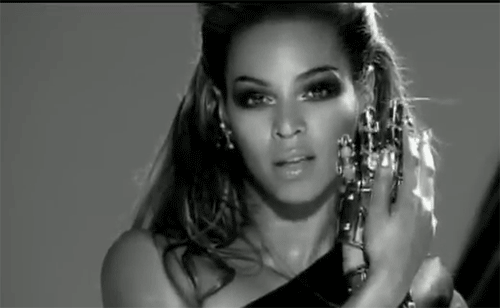Okay, Okay I get it...When people think of the term, "Neo-Soul," the first thoughts that automatically come to mind are afros and/or natural hair of some kind; people singing barefoot, possibly wearing some form of the dashiki look; and earthy singer/songwriters that are accompanied by skilled musicians who can actually play live music (Shocking, I know...)....I Get It....Henceforth, deemed as "not marketable enough" to appeal to the mainstream public. The term was originally coined by record executive, Kedar Massenberg, and was developed as a result of the successes of both D'Angelo's Brown Sugar and Erykah Badu's Baduizm released in '95 & '96, respectively. By that time, regular R&B had turned into nothing more than a graphic portrayal of what happens in the bedroom (thanks to the likes of R. Kelly), and the record industry needed a catchy phrase to describe these "throwbacks" from the 70's (as it was largely viewed).
Hence the term "Neo- Soul" was born. While listeners now had a section to go to in the record store (Yes, people still bought records back then) to find their favorite artists, those same artists had now taken a bit of offense to putting a label on their music. These artists who were generally expressive and experimental in nature found that if they were classified as one specific genre, it would greatly hurt their chances of ever venturing outside of the genre....with both the listening public and to the industry, in general. In addition, the idea of music being categorized is that it eventually becomes a fad, which is popular for a while, until it inevitably fades into obscurity.
If you really think about it, there were always some artists who stepped outside the normal boundaries of R&B, and made more "organic" soul music. Acts such as Tony!, Toni!, Tone!, The Brand New Heavies, and Mint Condition were all doing Neo-Soul back in '91.... long before there was ever an official term for their "avant-garde" brand of R&B.
By the beginning of the new millennium, Neo-Soul was at the height of its popularity. Lauryn Hill had come on the scene, and swept up a boatload of Grammys for The Miseducation of Lauryn Hill; then Alicia Keys took home a boatload more in 2001 for Songs in A Minor. 2001 also saw the commercially successful debut releases Musiq Soulchild, Indie Arie, and Jill Scott. Then add a dose of conscious Hip-Hop into the mix with Common and The Roots, and the marriage between Neo and Soul was complete.
So what happened? As always, the music industry is what happened. As we've seen repeatedly, every few years the musical landcape tends to change. What is considered "New" and "Hip" one minute is considered "Old-Fashioned" the next....as the case with Neo-Soul. Suddenly, the industry had a hard time dealing with artists who refused to conform, and sacrifice their style and sound to fit newer trends. As a result, major labels stopped promoting Neo-Soul altogether, forcing many of its acts to make a go of it alone. But make no mistake....Neo-Soul isn't dead. There are still acts out there such as Esperanza Spalding, John Legend, Raheem DeVaughn, and countless others who have now managed to connect with their core audience thanks to platforms like Facebook and Twitter. They are still out there performing and touring, but now making music on their own terms, and distributing it by way of smaller, independent labels.
So I ask you: Is the Term "Neo-Soul" a Blessing or a Curse For Artists Labeled in The Genre?
What Are Your Thoughts?





